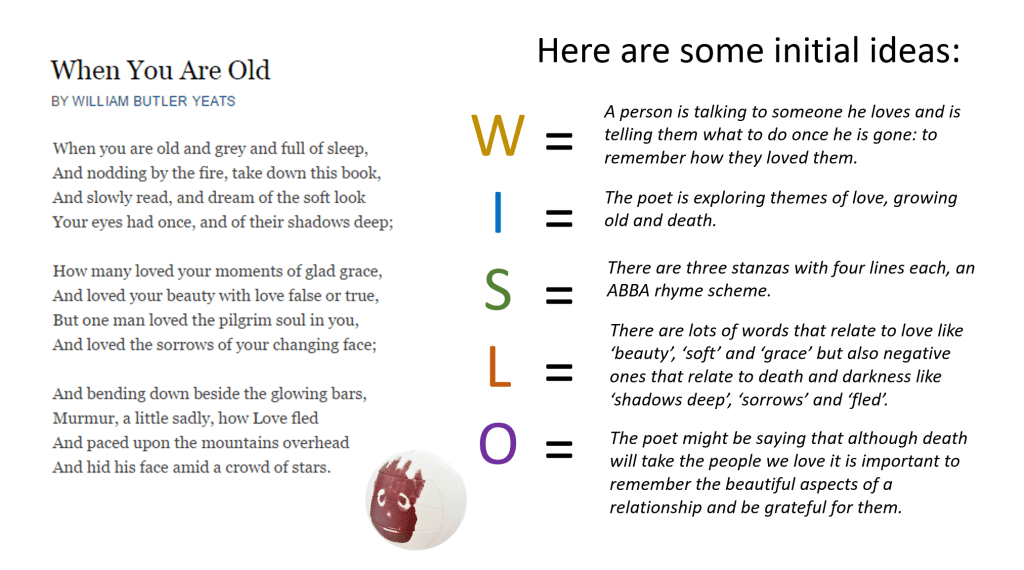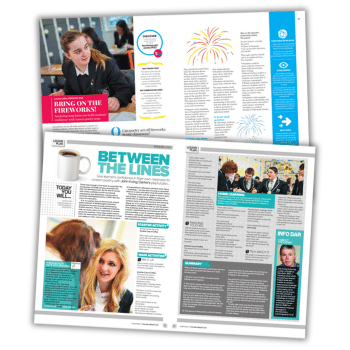What’s on the unseen poetry GCSE paper?
In the GCSE English Literature exam, “unseen poetry” refers to a section where students are given a poem that they have not studied beforehand.
The purpose of this section is to test students’ ability to analyse and interpret poetry in an exam setting without any prior knowledge or preparation.
Unseen poetry GCSE lesson plans
Analyse Firework by Katy Perry
This unseen poetry GCSE lesson plan marked a turning point for Luella Murray’s students, with even the most reluctant referring to poetry as ‘cool’.
Not only does this lesson inject fun into teaching poetry, but it also supports the development of key GCSE skills. This lesson plan will put life back into studying poetry in the classroom. It will ignite interest and work on building skills needed for approaching their unseen poetry GCSE exam.
Key curriculum links
Pupils should be able to:
- Confidently identify key techniques within an unseen text
- Explain the effect of key techniques and the intentions of the writer
- Approach an exam-style question
Starter activity
As students enter the classroom, three sentences should be displayed on the board:
- ‘You’re a firework’
- ‘Like a lightning bolt, your heart will glow’
- ‘After a hurricane comes a rainbow’
The task is to identify the devices used and explain why they are effective. The challenge task is to consider any alternative interpretations of the quotes.
This task immediately gets students identifying techniques and gives them an insight into the text we will be focusing on in the lesson (Firework by Katy Perry).
Luella Murray is an English NQT at The Stanway School in Colchester.
Give learners confidence in their own responses
Pupils need to enter the examination hall with confidence in their own ability to meet, read and enjoy the prospect of responding to otherwise unknown texts.
Gone – thankfully – are the days of trying to remember what sir or miss said about what this poem means.
This lesson plan calls for pupils to work in pairs and groups. It requires an ability to sequence poetry text, to make and justify proposals and to compare texts in terms of structure and meaning.
Above all, it is a lesson designed to encourage participation. Although we end up with the poet’s final published draft, there are no absolutely right answers.
Hypothesising and trialling can be fun and presenting a case to support suggestions is formative. Ultimately, playing with words will be as pleasurable as messing with paints or jamming with musical instruments.
Learning objectives
- Develop your confidence and skills when responding to unseen poetry
Starter activity
Reveal the title first of all: Another Cup of Coffee. What might pupils expect from a poem with such a title? Ask them to write down one word to sum up their response.
Share these and consider what has been revealed about the class’s expectations of the poem.
John Irving Clarke has an MA in English in Education. He visits schools to read, perform and lead workshops on creative writing and responses to literature. He also delivers INSET on Developing Language Strategies in the Classroom.
Unseen poetry scheme of work

In this unseen poetry SOW, students learn to analyse the language, structure and form of unseen poems using differentiated resources and extension tasks. The resource contains 15 PowerPoints.
Toby Grimmett is an English teacher and illustrator. You can find more of his resources on his TES page Secret Sharer and follow him on Twitter at @grimmetttoby and Instagram at @tobygrimmett.
Download our AQA English Language Paper 1 ultimate revision booklet and AQA English Literature Paper 1 revision resource.














